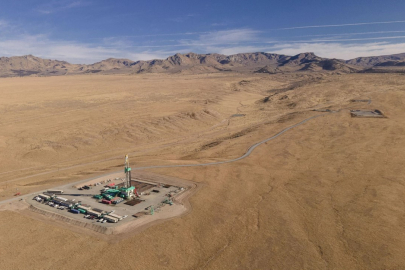-
 EERE is committed to bringing the benefits of energy innovation to every American by making the United States a global leader in renewable energy and energy efficiency technologies.
EERE is committed to bringing the benefits of energy innovation to every American by making the United States a global leader in renewable energy and energy efficiency technologies.
The U.S. Department of Energy (DOE) is committed to ensuring all Americans benefit from the growth of renewable energy and the modernization of our energy system, no matter their location or economic conditions. DOE’s Office of Energy Efficiency and Renewable Energy (EERE) has implemented a range of programs, funding opportunities, and research and development projects to improve the accessibility of renewable, affordable energy.
Why Is Energy Accessibility Important?
Energy accessibility is the principle that all Americans should be able to obtain energy from affordable, reliable, and sustainable sources. No American should be forced to choose between home electricity use—lighting, heating, cooling, and powering appliances—and other basic living expenses, such as food and medication.
As many as 54% of Americans, or about 50 million people, qualify as low-income and have a disproportionately high energy burden, which means the percentage of gross household income they spend on energy is at least three times higher than it is for middle and high-income Americans.
Additionally, many American communities face high energy costs due to their geographical isolation and vulnerable energy infrastructure. These disadvantaged communities, which are disproportionately affected by pollution and extreme weather events, stand to benefit the most from access to renewable energy technologies, energy-efficient housing, and low-carbon transportation options.
How Can We Improve Energy Accessibility?
The federal government has taken steps to make energy more accessible through a range of initiatives, programs and investments. These include:
- The Energy Transitions Initiative Partnership Project (ETIPP), which works alongside coastal, remote, and island communities that are seeking to transform their energy systems and improve their energy resilience, often through the integration of renewable energy into their power systems. ETIPP helps communities assess and advance energy projects that best meet their unique needs.
- The DOE Communities Local Energy Action Program offers technical assistance to low-income, energy-burdened communities that are shifting away from a historical reliance on fossil fuels. The program facilitates sustained, communitywide economic and environmental benefits, primarily through renewable energy deployment.
- Engaging with community-based organizations, Tribal nations, states, local governments, and minority-serving institutions through targeted requests for information, roundtables, assistance programs, such as community solar subscriptions, and workshops with historically underserved communities.
- Collecting more data on demographics and disciplines in our projects to better track progress toward our energy accessibility goals.
- Developing research topics that ensure more well-rounded participation in energy innovation programs.
- Expanding funding opportunities to attract and enable more diverse participants.
- Providing resources that help consumers improve energy efficiency at home and in buildings. Energy-efficient and electric building and appliance upgrades can reduce indoor and outdoor air pollution, improve public health, and cut millions of tons of greenhouse gas emissions every year.
Compete for Energy Innovation Prizes
With low barriers to entry, EERE prizes are designed to support anyone with an idea for a project that brings renewable power, energy resilience, and improved accessibility to their local community.
- The Community Energy Innovation Prize supports grassroots innovation, entrepreneurship, capacity building, and economic development in communities historically underrepresented in renewable energy funding.
- The Clean Energy Coalition Prize supported community coalitions—made up of nonprofits, city governments, school systems, and other community organizations—in executing their strategies to address a local energy opportunity or inequity.
EERE Needs Reviewers!
If you have academic experience, lived experience, or other knowledge that could help make renewable, affordable energy accessible to more Americans, consider becoming an EERE reviewer. Most reviews offer payment for time spent, and your contribution will help inform EERE’s project selections in energy innovation.
Energy Accessibility News
-
 Advanced by Americans: A Year of Energy Innovation
Advanced by Americans: A Year of Energy Innovation -
 The U.S. Department of Energy’s (DOE) Clean Energy to Communities (C2C) program is now accepting applications for a new round of peer-learning cohorts.
The U.S. Department of Energy’s (DOE) Clean Energy to Communities (C2C) program is now accepting applications for a new round of peer-learning cohorts.

